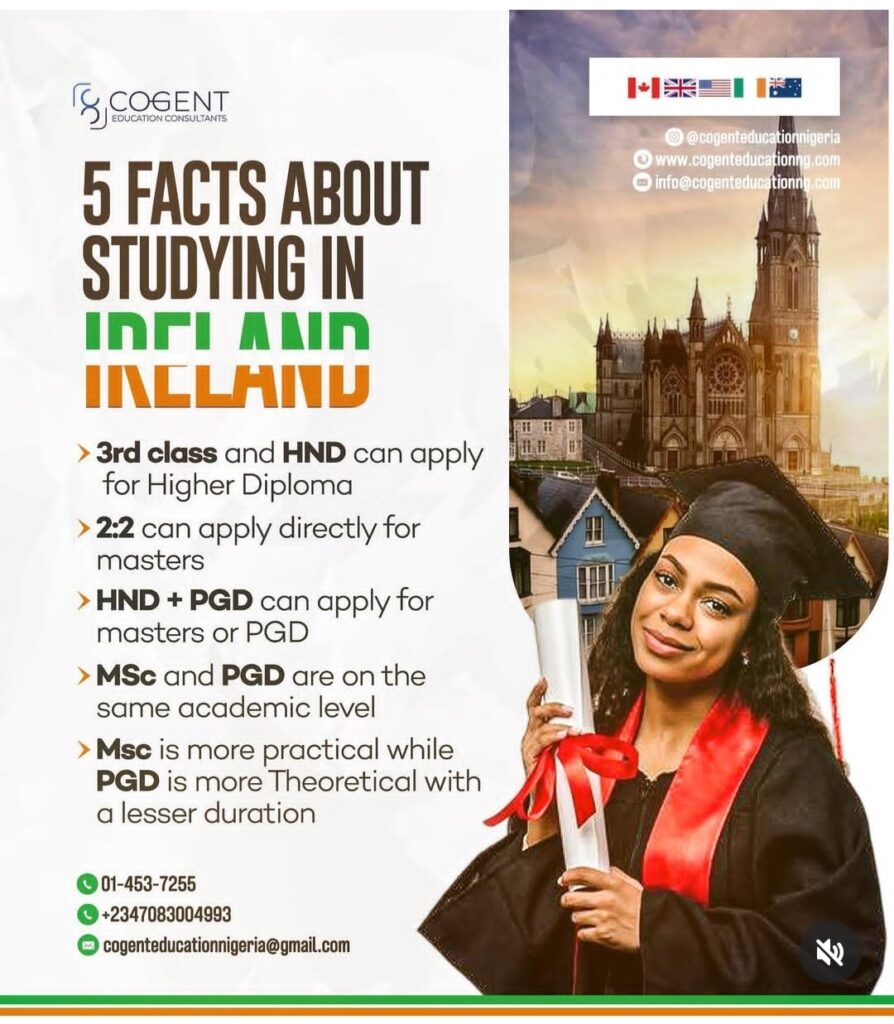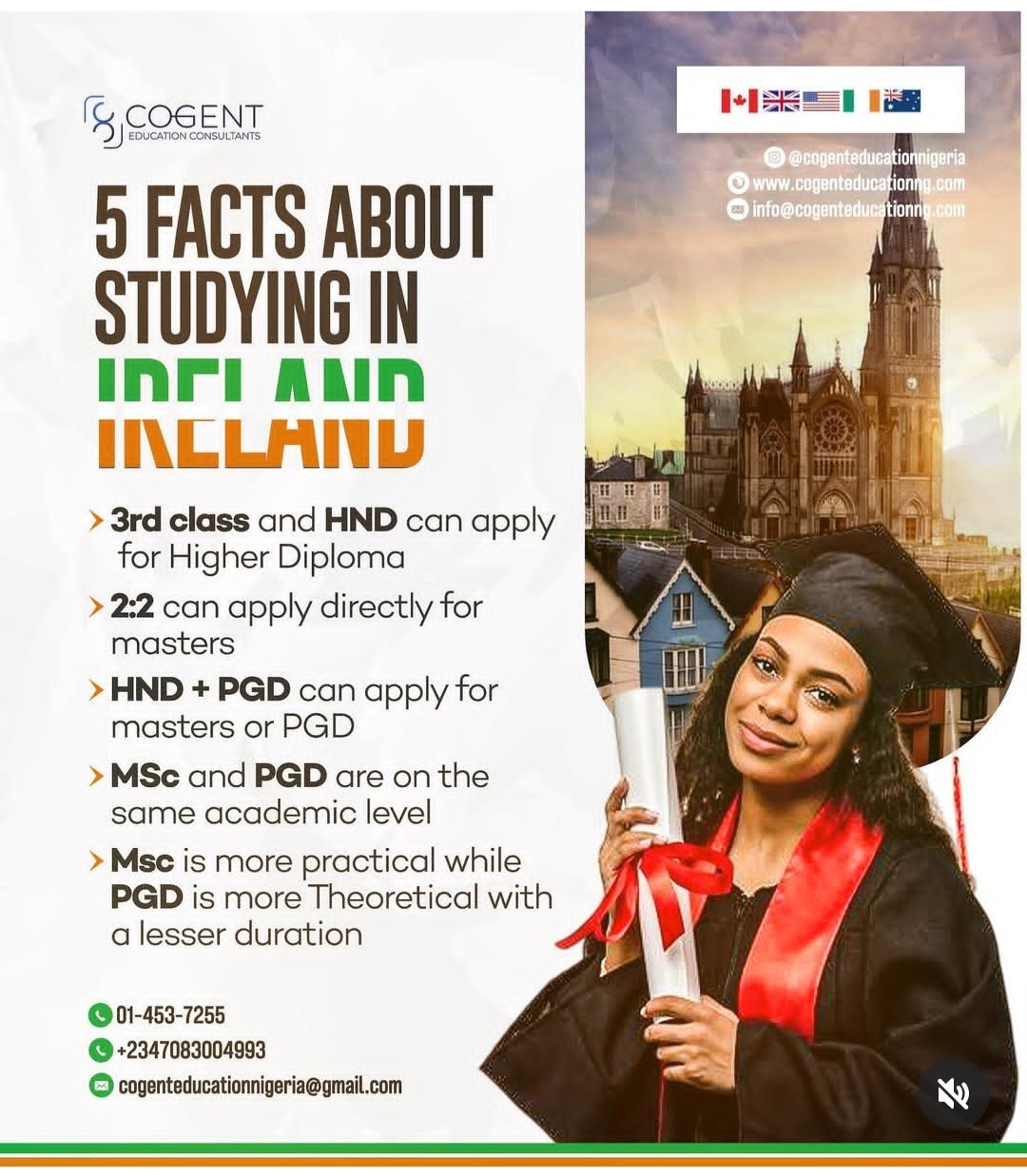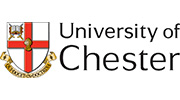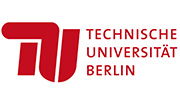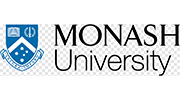Are you a graduate with a 3rd class, HND, or 2:2, wondering if you can still study abroad?
Good news Ireland offers flexible academic entry routes and world-class education. Whether you’re aiming for a Higher Diploma, Postgraduate Diploma (PGD), or Master’s (MSc), there’s a clear path for you.
Here are 5 detailed academic facts every Nigerian or international student should know about studying in Ireland, especially if you hold a non-First Class degree:
1. 3rd Class & HND Holders Can Apply for Higher Diploma (HDip)
If you have a Third Class Bachelor’s degree or Higher National Diploma (HND), you can still pursue education abroad!
In Ireland, universities and colleges accept these qualifications for a Higher Diploma — which is equivalent to a bridging or conversion course. It typically lasts 1 year and prepares you for a Master’s later.
📌 This is perfect if your undergraduate results are not strong enough for direct Master’s entry.
2. Second Class Lower (2:2) Can Apply Directly for Master’s (MSc)
A 2:2 (Second Class Lower) is widely accepted for direct Master’s admission in many Irish universities and institutes of technology.
If your field of study matches the course you’re applying for, you don’t need a pre-master’s or diploma route.
🎓 Go straight into MSc and graduate within 1 year!
3. HND + PGD Holders Can Qualify for Master’s Entry
If you already completed an HND and then added a Postgraduate Diploma (PGD) in Nigeria or abroad, you’re eligible to apply for a Master’s degree in Ireland.
This combination proves your academic progression and meets the entry requirements for MSc in many fields like:
- Business
- IT & Computer Science
- Healthcare Management
- Engineering
4. MSc and PGD Are on the Same Academic Level — But Serve Different Goals
In Ireland, a Postgraduate Diploma (PGD) and a Master’s Degree (MSc) are both Level 9 on the National Framework of Qualifications (NFQ).
🔸 MSc is usually research- or project-based and more intensive.
🔸 PGD is theory-driven and slightly shorter, ideal for students looking to upskill quickly or bridge to an MSc.
🎯 This gives you the flexibility to choose based on your career goals and timeline.
5. MSc is More Practical, PGD is More Theoretical with Shorter Duration
If you’re career-focused and want hands-on experience, MSc programs are designed with industry projects, case studies, and internships.
PGD programs are ideal if you’re:
- Exploring a new academic field
- Working on a tight budget
- Planning to upgrade to MSc later
Most PGDs last 8 to 12 months, while MScs can take 12 to 24 months depending on the course.
Bonus: Career & Visa Opportunities in Ireland
- Post-study work visa of 1–2 years is available
- Ireland hosts global companies like Google, Facebook, Pfizer, Amazon, TikTok
- You can live, work, and gain international experience
- Travel easily across Schengen and EU countries
🎓 Not Sure If You’re Eligible?
Upload your transcript or HND/PGD/MSc certificate and let us evaluate your study options in Ireland.
Apply below Let Cogent Education Consultants Guide YouThank You for Trusting Cogent!
We’ve proudly supported hundreds of students with:
- Course and university matching
- Personal statement editing
- Visa and accommodation support
- Scholarship advice
- One-on-one consultation

